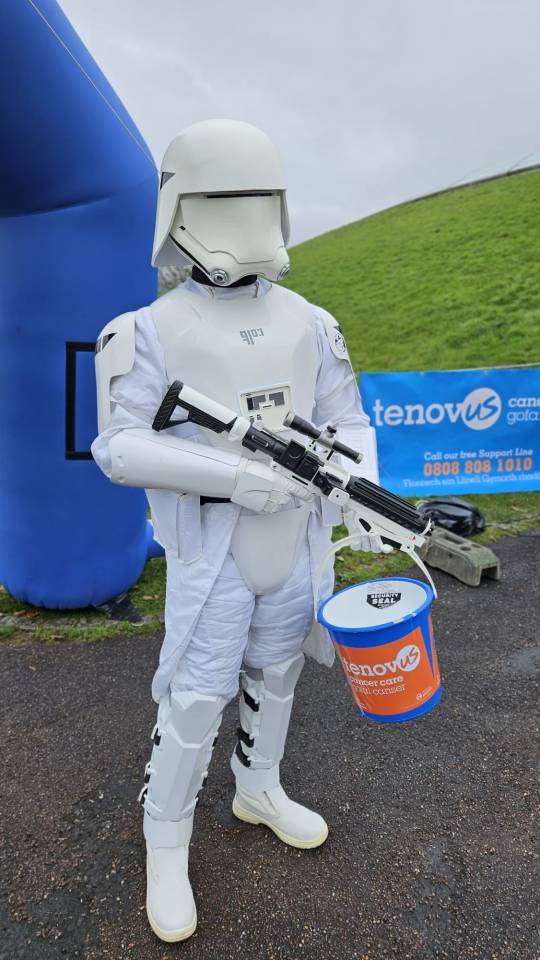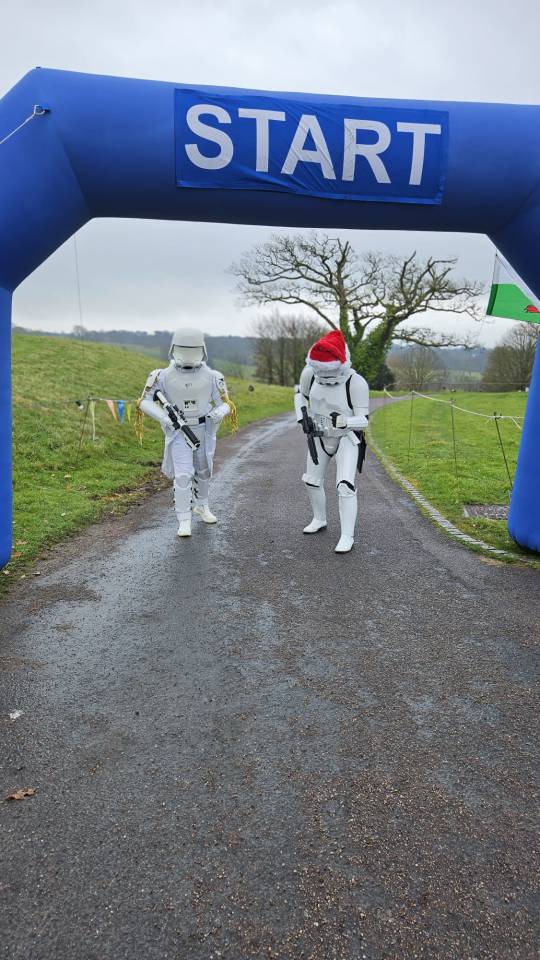#cancer care
Explore tagged Tumblr posts
Text

To anyone that thinks cancer is incurable I say, “Have you met my mother?”
If you haven’t heard her story by now, my mom healed from cancer naturally. She did not want to use conventional treatments (chemo or radiation) because of what she saw close friends go through on them, and none of their outcomes were favorable. Instead, nutrition was her primary medicine. Her healing protocol involved regular juicing, detoxing, fasting, a plant-based alkaline diet, individualized supplementation, ozone water (oxygenated water), infrared sauna time, stress management, surrounding herself with love and support….
My mom understood that the disease took years to manifest, so she was committed to this healing lifestyle for years. As a result, she restored balance and she healed.
Google your condition and cases where people have healed from it. If there’s even one result, let that give you hope that your condition is not incurable. But know that it will likely require you to think outside the box of medicine alone.
Book recommendations:
Radical Remission, by Dr. Kelly A. Turner
Spontaneous Healing, by Dr. Andrew Weil
The Gerson Therapy, by Charlotte Gerson
#bigpharma#medical system#medical industry#cancer#cancer fighting#anticancer#natural cancer treatments#cancer care#holistic treatment#holistic healing#holistic health#holistic#holistichealth#holisticwellness#holisticliving#Heal#healing#disease#Disease fighting
43 notes
·
View notes
Text
Childhood cancer awareness is incredibly important to me!! A very close friend has recently gone into remission!! This experience has drawn my attention to how little funding and recognition childhood cancer receives!! (Especially for rare cancer types like Sarcoma)
1 in every 285 children will develop cancer before the age of 20, 47 of those children will be diagnosed today, those 47 families will spend over 40% of their annual income on supporting their child. Tomorrow another 47 children will need your help and funding.
According to the Children’s Cancer Research Fund:
Childhood cancer remains the most common cause of death by disease among children in the U.S.
The amount of funding that goes to childhood cancer research continues to pale in comparison to the funds available for research into adult cancers. Current cancer research funding from the federal government, dedicates funding to childhood cancer research that is in the single digits.
I believe that these numbers can and should change. And that you can help! In the notes have I will be providing links to resources for helping children with cancer in your community, as well as links to donate directly to funding childhood cancer research and relief. Remember that you can have positive change in your community and in this world.
Ways To Aid:
Remember that you have the power to reach out and help your community! Organize. Support. Reach out and find opportunities to volunteer! Make the world a better place!!
#childhood cancer#childhood cancer awareness#cancer#cancer awareness#donations#donation links#positivity#community support#cancer care#signal boost#please rb#rb to spread awareness#sire’sramblings
22 notes
·
View notes
Text
Help My brother Alaa Edin Get Medical Attention HE NEEDS.
A cancer patient. A Dad of three little kids.
https://gofund.me/1faa1518
#cancer fightr#cancer patient#cancer care#cancer treatment#chemotherapy#chemo#fundraising#fundraiser#gofundme#rescue family#free gaza#gaza fundraiser#gaza funds#gaza fundraising#please help#please share#please donate#donate#donate today#palestine
6 notes
·
View notes
Text
New York Doll needs Sweet Relief from cancer
#help David Johansen
buy a cool tee:

#new york dolls#david johansen#punk rock#punk#music#fundraiser#cancer#cancer care#musician#families#medical bills#usa#luv#tee shirt#merch
2 notes
·
View notes
Text
Hope, Care, and Support for Your Cancer Journey in Mumbai
We bring hope and healing through advanced cancer treatments in Mumbai. From diagnosis to recovery, we’re here to support you every step of the way. Because fighting cancer is easier when you’re not alone.
2 notes
·
View notes
Text
Hi fholks am doing the 20 mile Kiltwalk in less than a fortnight in aid of Marie Curie, please if you can afford it a wee donation would go a long way, click on this link
https://www.justgiving.com/page/david-tolmie-1722930986306?utm_campaign=lc_frp_share_transaction_fundraiser_page_donation_received_-_first_donation&utm_content=c9b09da6-fd51-455d-8999-b1a114b841f9&utm_medium=email&utm_source=postoffice&utm_term=1722950886680&fbclid=IwY2xjawFD0NpleHRuA2FlbQIxMQABHZizmPOC9aoQQXu-u6s0PdTjSo1Gbf5AzyI5uvzfarD-CjnCXPIPm0MptQ_aem_tz_Z-axG5lSMjiLalnv59w
5 notes
·
View notes
Text
Cancer: A Food-Borne Illness, a documentary by Grace Price
I know this isn’t the typical stuff I post on here, but a friend of mine sent me this documentary this morning and it really did struck me. This is a topic I was already familiar with, but seeing more evidence being shared it’s always fascinating and incredibly heartbreaking at the same time. I’m no doctor by any means, but throughout my life I had the opportunity to partake in similar projects which really changed the way I perceive health as a concept. It all had to end when I asked the WWF ambassador why they were sponsoring a label that in reality ensures neither the quality of the food nor the protection of the environment. They did don’t like that, let’s put this way.
I think this is an important watch, especially if you are from the USA,
where processed food couldn’t flourish more than ever. I love food and I love health, but companies and their greed for money don’t. Sadly, it’s up to you to mind your wellbeing.
It’s a short watch: 23 minutes, way less than what the majority of people spent on social media every day, me included.
WATCH HERE (it’s free on Twitter)




#health#healthcare#cancer#cancer prevention#cancer care#science#nature#human health#documentary#usa#usa politics#world health organization#cancer research#cancer awareness#cancer awareness month
2 notes
·
View notes
Text
Christmas fun run and Troop at The National Botanical Gardens of Wales for Tenovus Cancer Care.






A fantastic day out entertaining kids and big kids alike 😀
#Tenovus#tenovus cancer care#tenovus#sttar wars#stormtrooper#snowtroopers#snowtrooper#stormtroopers#the empire#the first order#cancer#cancer care
6 notes
·
View notes
Text
Ok so normally "shitty public figure spreads cancer treatment misinformation" is a good way to get me mad, but "the aging king needs a potion brewed from the rarest herbs of the land and perhaps the tongue of a dragon for his ails" is 100% my aesthetic.

potions??? lmaoo rip bozo
66K notes
·
View notes
Text
Comprehensive Cancer Care at Narayana Cancer Centre: A Beacon of Hope
Cancer is a challenge that affects millions of lives, but with the right care and expertise, there is always hope. Narayana Cancer Centre stands as a pillar of strength for patients battling this disease. With a holistic approach and cutting-edge technology, this cancer treatment centre is committed to delivering world-class medical services with compassion and precision.
0 notes
Text

I have been invited to speak at the Healing Strong cancer support group next Thursday, April 25th at 7pm MST. This is an open invitation to anyone wanting to learn how to harness the power of nutrition and holistic therapies in the fight against cancer, regardless of whether or not you choose to use conventional treatment. Nutrition is our first, most powerful medicine and it’s administered three times a day. We improve symptoms and our chances of healing when we provide our body with the support it needs. Some of the things you will learn in this webinar....
1. Leveraging fasting (autophagy) and detoxing to encourage cell repair.
2. The power of juicing to provide cells with essential nutrients and to oxygenate the body.
3. Nutrition to alkalize the body and support its powerful healing mechanisms.
4. Holistic therapies that can help reduce inflammation and encourage quicker recovery and healing.
I am also thrilled to announce that I will have a special guest and courageous cancer survivor join me who has healed by implementing the nutrition, therapies, and methods that will be discussed. I cannot wait for you to hear her powerful story of inspiration and hope. To everyone else, she goes by Patti. To me, she is Mom. Since this is a topic close to my heart, there is no cost. Simply go here to register: https://events.theholisticchef.com/cancerwebinar
All the love, health & healing. 💚
~K
#cancersupport #HolisticHealth #nutrition #cancer #foodismedicine #integrativenutrition #integrativemedicine #cancerfighting #anticancer #reversecancer #holistic #holistichealing #heal #healing #diet #alkaline #disease #diseasefighting #diseaseprevention #juicing #inflammation #antiinflammatory #guthealth #detox #autophagy #immunity #breastcancer #health #healthyliving #healthylifestyle
#cancer#cancer fighting#natural cancer treatments#cancer care#anticancer#cancerfree#nutrition#holistic#holistic treatment#holistic healing#holistic health#holistichealth#holisticwellness#wellness#integrative health#integrative medicine#integrativenutrition#integrativemedicine
8 notes
·
View notes
Text
Lung Cancer Care at a Tipping Point: Advancements and Challenges
Technology, private equity, and strategic medtech partnerships are reshaping lung cancer care, bringing new innovations to the forefront of early detection and treatment.
Lung cancer remains the deadliest cancer worldwide, yet early detection rates continue to lag. While screening and diagnostic advancements hold promise, the complexity of care pathways and industry fragmentation have hindered progress. The panel discussion at LSI USA ’24 — Lung Cancer at a Tipping Point: Innovation, Private Equity, and Strategic Partnerships Driving Industry Expansion — brought together leading voices in medtech to discuss how we can drive meaningful change in lung cancer care.
The Lung Cancer Care Landscape: A Critical Need for Innovation
“Lung cancer is the biggest cancer killer, and unfortunately, it’s an incredibly aggressive disease,” said David Beylik, Partner at Ajax Health. “The only way to impact care is to catch it early.”
Despite the well-documented benefits of early detection, lung cancer screening rates remain alarmingly low. “Less than 7% of eligible patients receive low-dose CT screening each year, even though it’s reimbursed,” Beylik pointed out. In contrast, breast cancer screening compliance sits at 70%. This massive disparity represents both a challenge and an opportunity.
This blog is originally published here: https://www.lsiusasummit.com/news/lung-cancer-care-at-a-tipping-point-advancements-and-challenges
0 notes
Text
Tongue Cancer Signs, Risks & Treatment | Know the Symptoms
Discover tongue cancer symptoms, diagnosis, treatment, and prevention. Learn risk factors and the importance of early detection for better outcomes.
0 notes
Text
Old Age Care Services at Patient Care Services Centre | Compassionate Elder Care

Our Old Age Care services at Patient Care Services Centre are designed to offer aged individuals with the aid they want to lead a relaxed and pleasing existence. From daily sports to medical assistance, our professional caregivers offer customized take care of seniors, making sure their safety, fitness, and happiness. Whether at home or in a specialized care facility, believe us to offer reliable and compassionate take care of your loved ones.
0 notes
Text
Advancements in Medical Technology: Cancer Care and Beyond
Advancements in Medical Technology: Cancer Care and Beyond @neosciencehub #CancerCare #MedicalTechnology #BudgetFY25 #neosciencehub
The Union government’s initiative to establish Day Care Cancer Centres in district hospitals represents a significant step forward in making advanced cancer care technology accessible to a broader population. This plan not only aims to enhance the quality of cancer treatment but also addresses the pressing need for accessible healthcare in areas that traditionally face challenges regarding…
0 notes